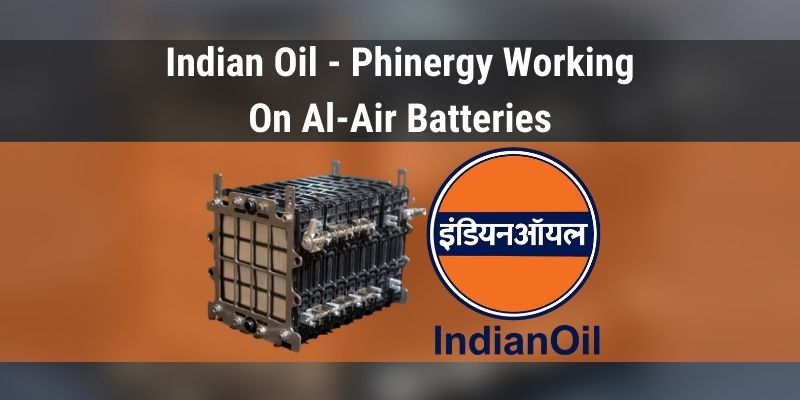Indian Oil or IOCL, India’s largest oil company and Phinergy, Israel’s clean energy company have a joint venture under the name IOCL-Phinergy. Indian Oil and Phinergy are soon going to open an aluminium-air battery plant in India. Al-Air battery can act as a viable replacement for Li-ion batteries as they offer better range and energy density.
Indian Oil and Phinergy
Indian Oil has a minority stake in Phinergy which was taken up in 2020. And now, earlier this year, IOCL and Phinergy formed a JV which is working on R&D, production, assembly and sales of Al-Air Batteries.
As we all know, EVs have a very small share in the passenger vehicle market at present. But, the future is evidently going to be more inclined towards EVs if we wish for sustainability.
Maruti Suzuki and Ashok Leyland have signed a Letter of Intent with IOCL-Phinergy to progress with the tech. This JV has also been working with Mahindra Electric to test the technology.
What are the pros and cons of the Al-Air Battery?
Let’s first take a look at the pros.
- Al-Air batteries weigh lighter and compact when compared to Li-ion batteries.
- Al-air batteries have higher energy density and can offer a better driving range to EVs.
- These batteries are a cheaper option. We all know that Aluminium is available in abundance when compared to lithium. This brings down the overall cost.
- This will help the companies to lower the overall cost of EVs.
Now, let’s take a look at some cons of using these batteries:
- You can’t charge the Al-air batteries in a conventional way.
- Also, after every few hundred kilometres, the battery needs a water top-up in order to run smoothly.
- You will have to replace the aluminium anodes after every few thousand kilometres.
Indian Oil – Phinergy can tackle the majority of cons by a plan to put up battery swapping stations. What do you think? Can this act as the boost for the EV revolution? Let us know in the comments section below.
